The Integrative Centers are communities within BRI that facilitate collaborations and interactions amongst a large community of scientists, including faculty, post-doctoral fellows and graduate students. The BRI has 5 Integrative Centers.
| Center Title | Director(s) |
| Learning and Memory | Alcino Silva, PhD, Michael Fanselow, PhD, David Glanzman, PhD |
| Neurogenetics | Nelson B. Freimer, MD, Carrie E. Bearden, PhD, Roel Ophoff, PhD |
| Neural Repair | Bennett Novitch, PhD; Ye Zhang, PhD |
| Addictions | Catherine Cahill, PhD; Nicolas Massaly, PhD |
| Center for Neurotechnology (CENT) Training in Neurotechnology Translation (TNT) |
Nanthia Suthana, PhD, Daniel Lu, MD, PhD, Dejan Markovic, PhD |

UCLA’s Integrative Center for Learning and Memory (ICLM) includes a diverse, highly collaborative community of neuroscientists exploring some of the most fundamental questions in science: how do we acquire, allocate, store, recall and alter our memories? What molecular, cellular, systems, and cognitive mechanisms are involved in this fascinating process? What are the causes of cognitive deficits?
Answers to these questions are not only transforming our vision of self, they are also having a profound impact in nearly every aspect of the human experience. By its very nature, this research is integrative and cross-disciplinary, incorporating molecular, cell biological, systems and behavioral level approaches to study synapses, neurons, circuits, brains and behavior.
The ICLM provides a cohesive identity and organizational structure that facilitates collaborations and interactions amongst a large community of scientists, including faculty, post-doctoral fellows and graduate students, working with a range of state–of-the art approaches from molecular and cell biology, to genetics, optogenetics, confocal and two-photon microscopy, in vivo and in vitro electrophysiology, structural and functional imaging, behavioral and cognitive tools, to name only a few.
Neuroscientists in ICLM have a long-track record of fundamental contributions to mechanisms of learning and memory, as well as to the causes and treatments of cognitive deficits associated with a range of neurologic and psychiatric conditions such as aging, learning disabilities, autism, schizophrenia, and post-traumatic stress. ICLM is an inclusive organization.
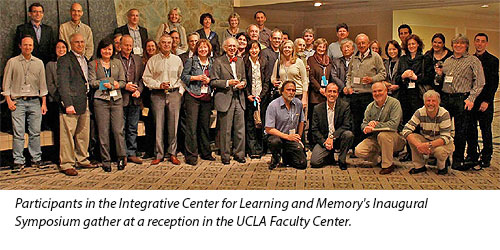
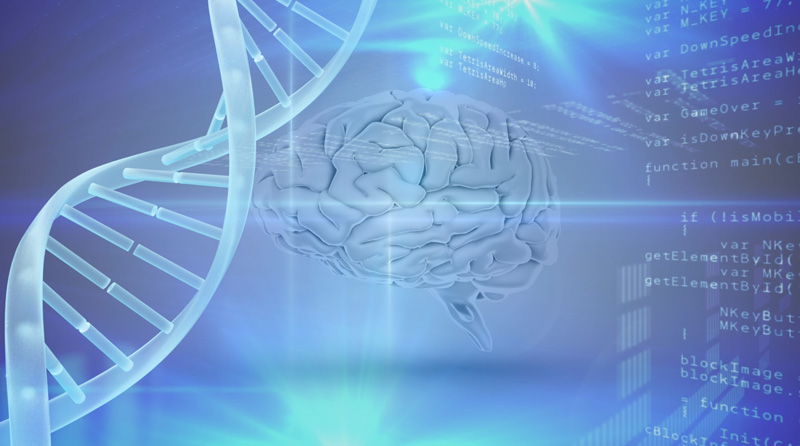
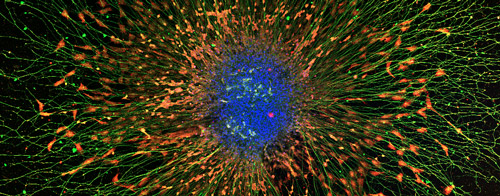 The UCLA Integrative Center for Neurogenetics (ICNG) focuses on discovering the genetic basis of major psychiatric and neurological disorders, and genetically dissecting additional traits that will shed light on the development, function, or degeneration of the central nervous system. Lack of understanding of the causes of brain diseases limits our capacity to develop better treatments and for prevention. We now have the research tools necessary to identify and characterize the specific genetic variations that predispose to brain disorders or that are associated with important nervous system traits in a wide range of model organisms.
The UCLA Integrative Center for Neurogenetics (ICNG) focuses on discovering the genetic basis of major psychiatric and neurological disorders, and genetically dissecting additional traits that will shed light on the development, function, or degeneration of the central nervous system. Lack of understanding of the causes of brain diseases limits our capacity to develop better treatments and for prevention. We now have the research tools necessary to identify and characterize the specific genetic variations that predispose to brain disorders or that are associated with important nervous system traits in a wide range of model organisms.
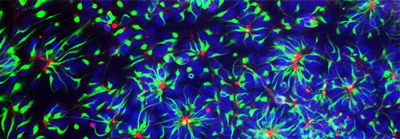 Investigators in the ICNG utilize – and in some cases helped to develop – state of the art genomic and genetic methodologies including high throughput genotyping and DNA sequencing, gene expression analysis, genetic manipulation of model organisms, as well as bioinformatics, statistics, and cell biology. The investigations within the ICNG depend on sophisticated approaches for assessing brain and behavioral phenotypes in humans and model organisms.
Investigators in the ICNG utilize – and in some cases helped to develop – state of the art genomic and genetic methodologies including high throughput genotyping and DNA sequencing, gene expression analysis, genetic manipulation of model organisms, as well as bioinformatics, statistics, and cell biology. The investigations within the ICNG depend on sophisticated approaches for assessing brain and behavioral phenotypes in humans and model organisms.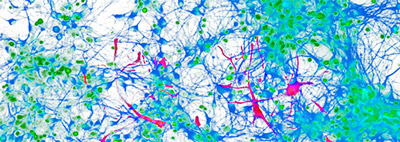 The development and application of such assessments provide the basis for numerous collaborations with investigators outside of the ICNG. The ICNG also occupies an important niche in the educational mission of UCLA. It is the focal point on campus for training graduate students and postdoctoral fellows in the genetic investigation of complex traits.
The development and application of such assessments provide the basis for numerous collaborations with investigators outside of the ICNG. The ICNG also occupies an important niche in the educational mission of UCLA. It is the focal point on campus for training graduate students and postdoctoral fellows in the genetic investigation of complex traits.

Addiction disorders represent the leading preventable disease in the world, and cause profound human suffering. Addiction is a neuropsychiatric disease that occurs in many forms, from drug and alcohol abuse, to gambling and overeating behaviors. The pain and depression resulting from addiction threatens the health and well-being of individuals, families and communities.
Addictive disorders are treatable and curable.

The UCLA Integrative Center for Addictive Disorders (UCLA-ICAD) is a research, treatment, education and outreach program developing new medications and strategies to conquer the causes, behaviors, and effects of addiction.
UCLA-ICAD is a state of the art, multidisciplinary research and treatment consortium consisting of five nodes of addiction research and clinical centers within UCLA’s Westwood campus. These nodes incorporate:
- The Shirley and Stefan Hatos Center for Neuropharmacology, a basic-research unit located within the David Geffen School of Medicine. The center studies reward pathways and their interaction with pain and depression. Research is conducted in the area of opioid drugs, nicotine and psychostimulants (amphetamine and cocaine), and identification of the genetic loci confer that leads to susceptibility for addiction-related phenotypes. Director: Christopher J. Evans
- The Integrated Substance Abuse Programs, a clinical and community-based research unit that assesses medications in clinical trials and develops pharmacological and non-pharmacological strategies to treat addiction in the community. The problems addressed include opioid, nicotine, psychostimulant and cannabis addiction. Co-Directors: Christine Grella and Larissa Mooney
- The Addiction Imaging Group uses its world-class brain imaging facilities to apply molecular, structural and functional imaging techniques to understand adaptations that accompany substance use disorders and identify characteristics for susceptibility to addictions. A specialty of the program is the application of multimodal imaging and the development of new imaging probes. Director: Edythe D. London
- The Addiction Medicine Clinic provides medication-management services for individuals suffering from problems with alcohol; opioids and heroin; cocaine and amphetamines; marijuana; gambling; and compulsive behaviors. Director: Timothy Fong
UCLA is an internationally recognized research and treatment center for addictive disorders. UCLA ranks as the top institute in the Western US and within the top 3 institutes in the continental US for research funding from both the National Institute of Drug Abuse (the major source of federal funds for addiction research) and the National Institute of Mental Health (the major source of federal funding for mental health research).
In the past, UCLA researchers have: created the nicotine patch for smoking treatment; proved that secondhand smoke can affect brain chemistry and function; cloned brain targets for opiate drugs; identified brain targets for alcohol abuse; done the first imaging studies of drug craving in humans; developed the Matrix Model for addiction treatment; introduced addiction services in many parts of the world including Vietnam, Egypt, Iraq, South Africa, and China; and led efforts for WHO, the UN, the Department of State, and the State of California to develop and implement innovative alternatives to incarceration for drug users in criminal justice systems.

The Integrative Center for Neural Repair (ICNR) at the UCLA Brain Research Institute brings together cutting edge research from a broad range of disciplines in order to accelerate the pace of scientific discovery, paving the way for more effective and innovative treatments for diseases and injuries of the nervous system.
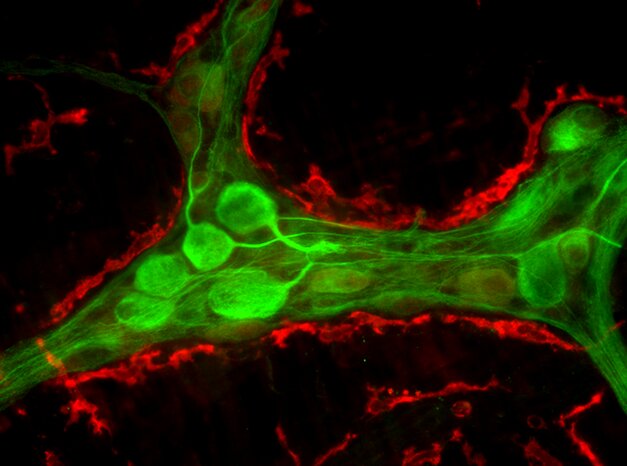
Whether due to injury or disease, damage to the central nervous system negatively impacts millions of lives each year. Neurodegenerative diseases such as Alzheimer’s, Parkinson’s, ALS, or Huntington’s progressively debilitate patients over time, while stroke, traumatic brain injury, and spinal cord injury can alter the course of a life in an instant. Unfortunately, current treatments for these disorders are few and limited in scope, and mostly deal with alleviating symptoms rather than repairing the damage. To shift the current paradigm, our research focus is not only to understand the underlying mechanisms of neuronal degeneration, but also to study how healthy neurons develop and function, protect themselves against damage, and recover by forming new connections and networks.
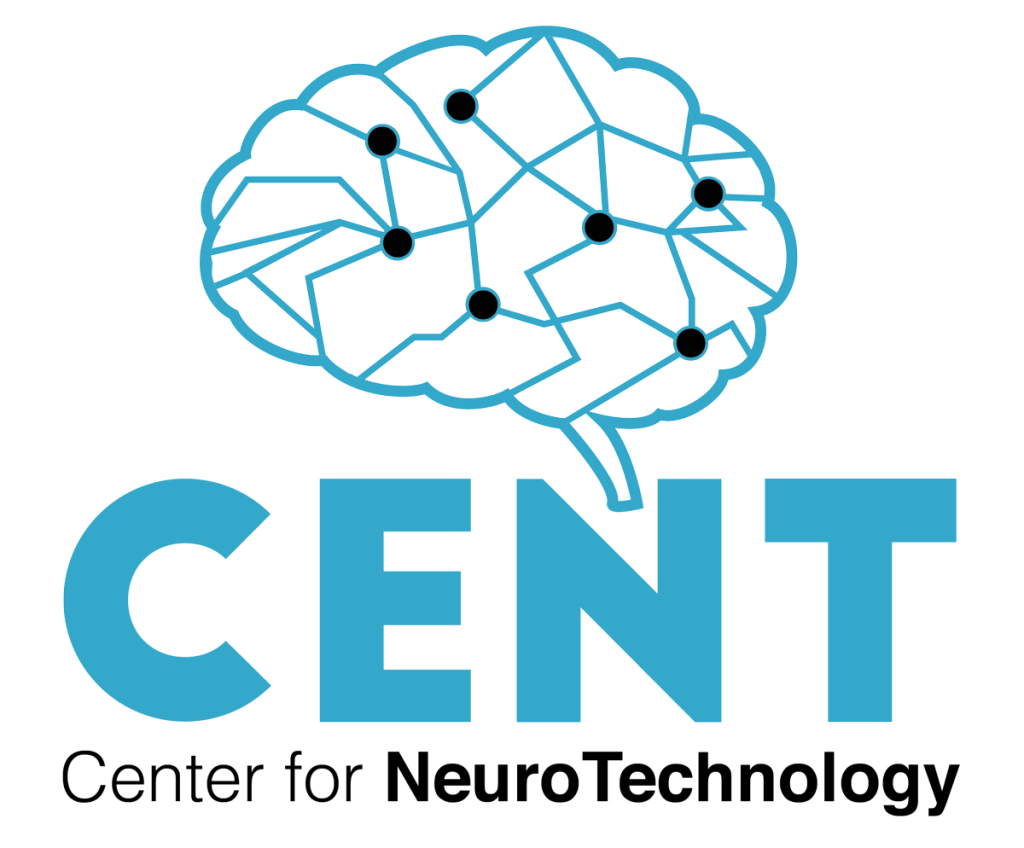
This page is being updated. Please come back later. For now, you can check out the affiliated “Traning in Neurotechnology Translation (TNT)” T32 associated with CENT: https://bri.ucla.edu/tnt/

